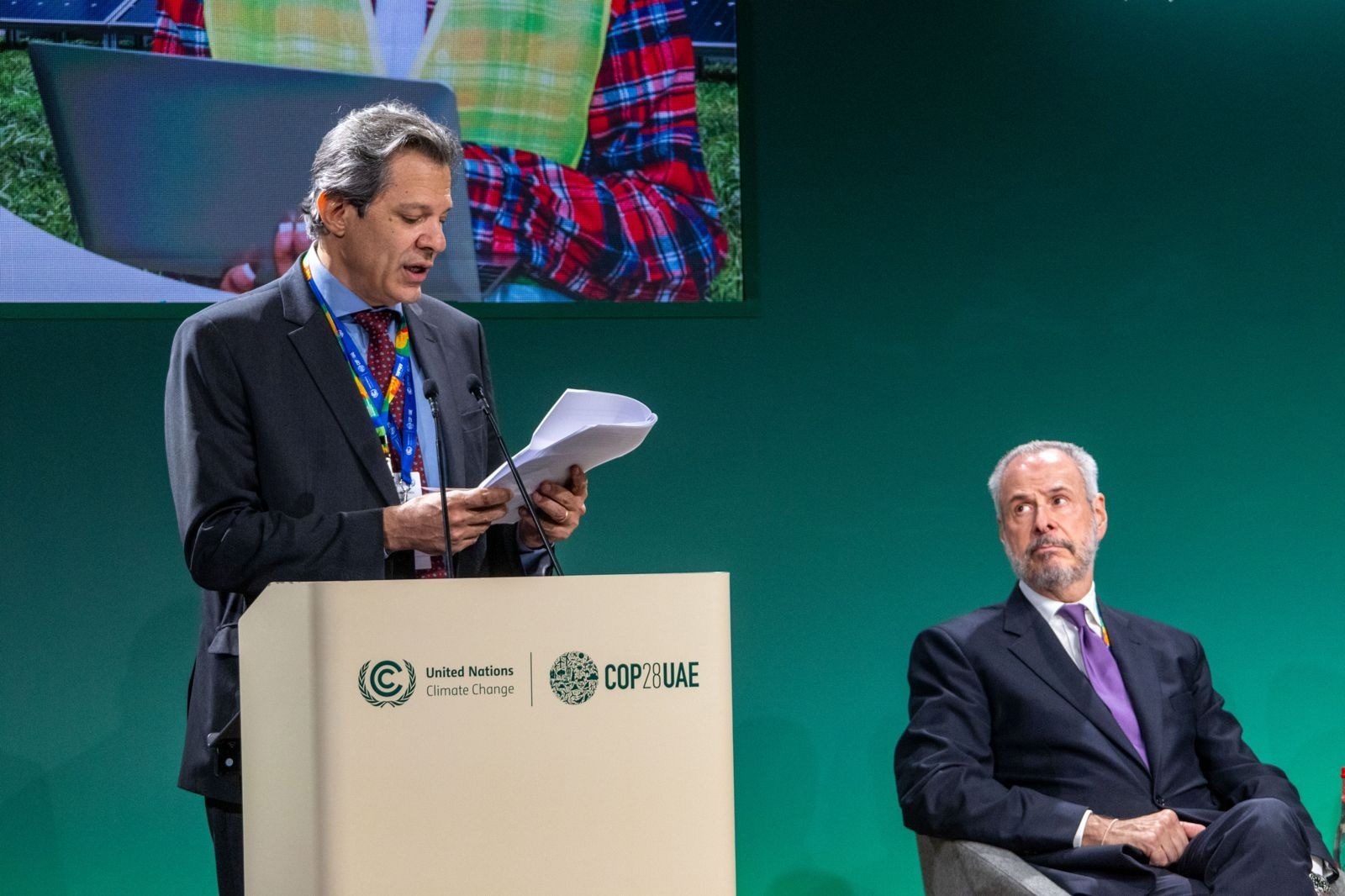On December 1st, at COP28, the Government of Brazil launched its Ecological Transformation Plan in a presentation by the Finance Minister, Fernando Haddad.

Fernando Haddad speaking at COP28. Photo credit Fernando Donasci
The event also included the participation of the Minister for Environment and Climate, Marina Silva; the President of the BRICS Bank and former President of Brazil, Dilma Rousseff; the President of the Brazilian Development Bank, Aloizio Mercadante; the President of the of the Inter-American Development Bank, Ilan Goldfajn; and the Secretary for Climate, Energy and Environment of the Ministry of Foreign Affairs, André Aranha Corrêa do Lago.
The plan challenges development paradigms by envisioning a new role for the Global South in the contemporary world. It is a proposal that presents the region as the center of the green economy by advocating for environmentally sustainable and socially inclusive globalization.
In his presentation, Minister Haddad stated that initial studies from the private sector indicate that ecological transformation could generate 7.5 to 10 million jobs across all sectors, with a focus on the bioeconomy, agriculture, and infrastructure segments, as well as income-generating opportunities.
However, to realize this scenario, the same studies estimate that Brazil needs additional investments in the range of $130 to $160 billion per year over the next decade. The investments should occur mainly in infrastructure to promote adaptations, produce energy, enhance industrialization, and improve mobility.
Minister Haddad praised Brazil's ability to mobilize investment and create sustainable infrastructure through public investments. He cited national examples that make the country "a giant in renewable energy," highlighting the network of hydroelectric plants, the unified electrical system, ethanol production, and the role of Petrobras and other leading national companies in the research and development of biofuels.
Citing examples of implementation measures, the minister referred to the creation of a regulated carbon market, the issuance of sustainable sovereign bonds, the definition of a national taxonomy focused on sustainability, and the revision of the Climate Fund. The initiatives aim to create conditions for a new wave of investments with the goal of concentrating industrial technologies, modernizing science, and qualifying the workforce nationally.
Advancements
"The Ecological Transformation Plan that I have the honor to present to you today aims to unite forces around a historic goal: to interrupt five centuries of extractivism and environmental destruction to position Brazil at the forefront of sustainable development," declared Minister Haddad.
Haddad announced advancements in key areas for the ecological transformation of the Brazilian economy, achieved by the current administration since the minister attended the COP in Egypt last year. One of them was the nearly 50% reduction in deforestation in the Amazon due to the reactivation of prevention and control actions in the biome.
The minister listed the recently approved Bills on green hydrogen and offshore wind energy generation by the National Congress as crucial sectors for the energy transition that hold enormous potential for the country. Brazil also revised the Nationally Determined Contribution (NDC) to achieve a 53% reduction in emission levels compared to the year 2005, a climate goal more ambitious than that of many developed countries.
"The Ecological Transformation Plan is an evolutionary process, just like the challenge of climate change. It will seek to adapt to new paradigms and develop public policies to address not only past problems but also those of the future," added Haddad, who classified the plan as a realistic yet ambitious model for the reinvention of Brazil.